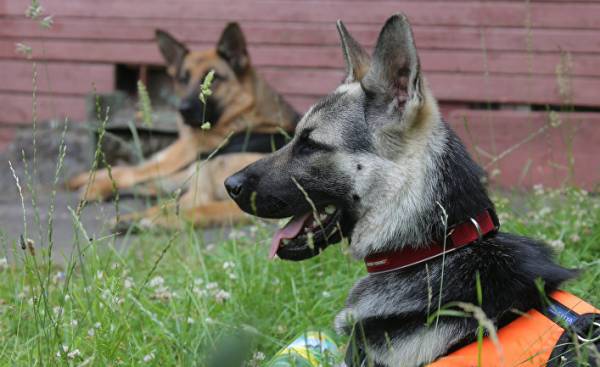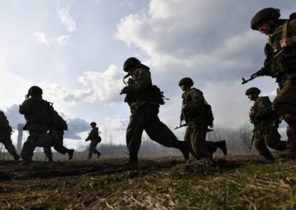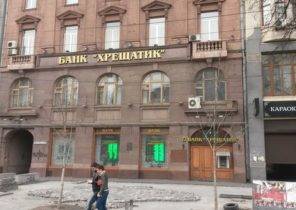
Last autumn, the Finnish border guard service started to pilot trained to search for documents of three dogs. At first they sought only training caches on the territory of the Border and Maritime patrol school in Imatra, and now they are already accustom to work under the influence of external stimuli.
The first step is to understand how a dog can smell a passport among other documents.
“They’re trained to recognize the smell on the example of a real passport. The smell of a document is formed from many components, and we don’t even fully understand how many shades catches a dog’s nose — says the officer-cynologist of the border service Raitanen Ari (Ari Raitanen). — The ability of dogs to detect and distinguish smells amazing. We are amazed — in a good way, because we were able to achieve much more than we expected”.
One of the trained dogs — three year old German shepherd Seiyo, which had been previously trained to find items and people. Officially, this search dog belongs to the border guard service, but he lives with his trainer, the senior officer of the border service Soininen Otto (Otto Soininen).
Now the training goes in the real working environment, and we went to see how it will take place at the airport Helsinki-Vantaa second training Seiyo vast array of smells and irritants.
At the airport, either constantly looking for a trace: he was a coward at the departure terminal and sniffs. Soininen said that his client can boast of and hard work and nerves of steel. “Seiyo is one of the best representatives of the breed. It is a large, quiet sheep dog, constantly ready to learn something new,” he notes.
For learning either is a good reason: the Finnish border are increasingly smuggling wheeling entry documents and transmit them to the persons who want to illegally enter the country. Border service, in turn, expects this trend to stop.
The main task of border guards — to check the grounds for entry into the country, so such dogs as either, learn to recognize the smell of it passports. In search of a driver’s license, gun permit and other documents animals are not trained.
“The smell of passports weak, besides, it is present in different places and touched it dozens of people, but the dog searches for the scent of the person and document, explains Raitanen. We believe that the dog is able to detect the smell of a passport, but it is certainly not can detect a fake document or not.”
An expert on border security Colonel Jussi Napola (Jussi Napola) States that using dogs fake documents expect to find faster, more efficiently and at lower cost.
“Across the border smuggling and transport of real and fake documents for illegal entry into the country or for a purpose contrary to the law,” he explains.
According to Napoli, for which it is now carried out training dogs in the year found dozens. Among the typical offenses — organizing the illegal entry, forgery, and providing false personal data.
At the airport, either walk, wagging his tail from one urn to another. One whiff of a passport, he sits down, thus showing that there is something noteworthy. As a reward for the found passport the dog gets the ball.
“Either works without a break, he is constantly looking for new tracks”, says Soininen.
In the future, these dogs can be used to conduct spontaneous inspections or for a specific task, when, for example, the guards suspect that in someone’s Luggage are the documents that will be used in wrong purposes.
Prospects of practical application of Seiyo and his four-legged colleagues in work are still not clear. Pilot training will be completed at the end of the year, and then the Board of the frontier service will assess the results of the experiment and decide on his fate. If the ideas decide to opt out dog will return to his old job.
The negative side of training is its high cost. According to Raitanen, any puppy can cost thousands of euros, but if you take into account other costs, particularly the salary of the dog handler, the cost of training one dog rises to hundreds of thousands of euros:
“Training an adult dog takes a lot of taxpayers’ money, so now, in terms of curtailed funding, we should all be very carefully considered”.
Of the three ongoing training of dogs two German shepherds and one Belgian Malinois.
They all have grown them for three or four years, and all worked in the border guard, while performing other tasks. They chose to study the search of passports due to the nature and desires of their coaches to participate in the experiment.
Rautanen does not know whether the dogs are taught something similar somewhere else in the world, but pointed out that the specialization of dogs — and this includes the search for documents is becoming more common.
Other types of specialization also focuses on preparing dogs for public services. So, in may of last year, Finnish customs, presented the first dog specializing in finding snuff.







